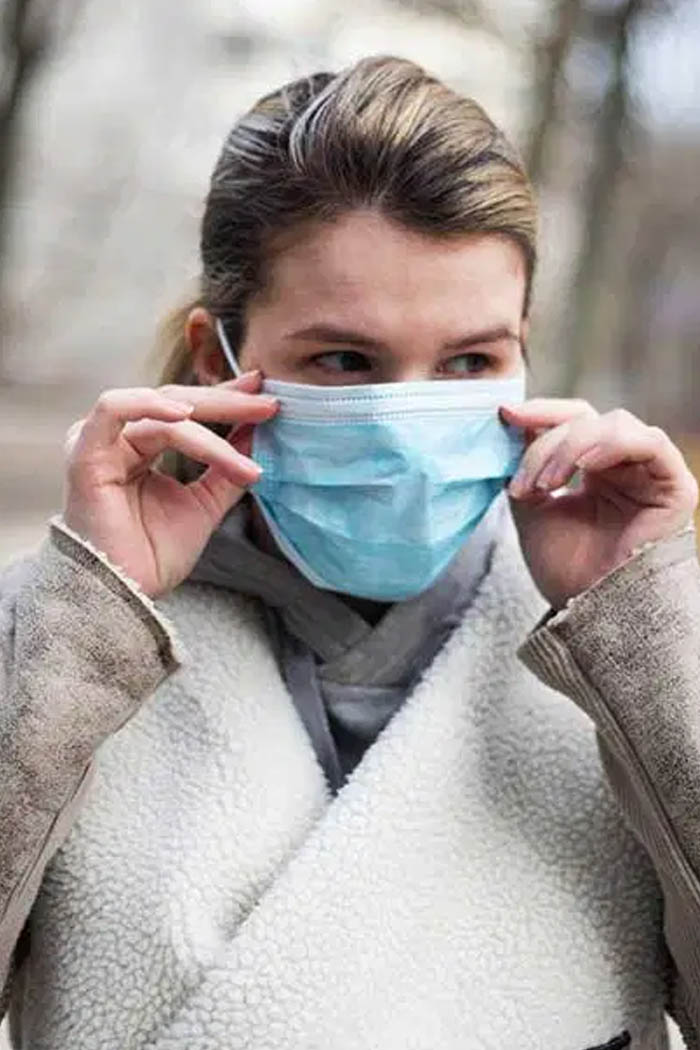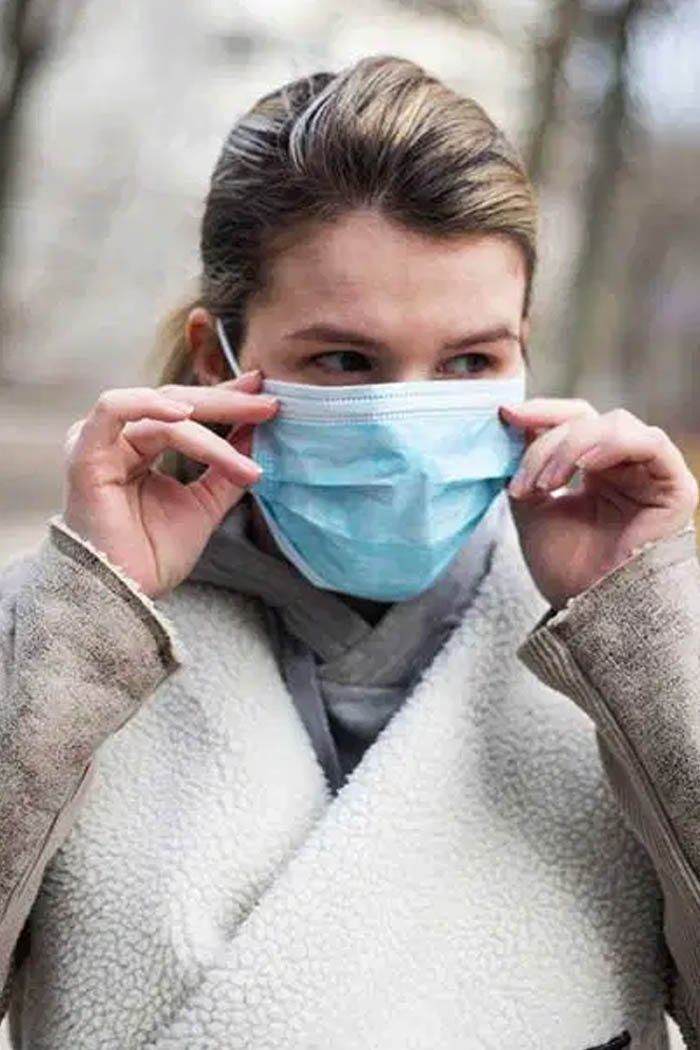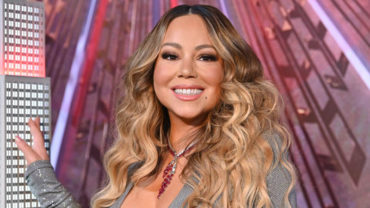However, according to new research published in the Journal of Allergy and Clinical Immunology, one surprising group may be less prone to contracting COVID-19: people with asthma. Read on for the details of the new unexpected study, and for more on the latest COVID-19 research, If You Have One of These Blood Types, You May Be Safe From COVID.
The survey was carried out by Israeli researchers, who tested 37,469 patients, 6 percent of whom were positive for the virus. Among that infected group, 6.75 percent had asthma. However, among patients who were negative for the virus, 9.62 percent of them were asthmatic.
As a result, the researchers concluded that there’s “lower COVID-19 susceptibility in patients with preexisting asthma.” According to the Centers for Disease Control and Prevention’s (CDC) statistics, that means the 7.7 percent of American adults and 7.5 percent of American children who have asthma may be somewhat protected from the virus.
Given that COVID-19 most commonly attacks the lungs and breathing system, these findings may seem counterintuitive. But there are a few possible explanations for this, according to researcher Eugene Merzon, MD, of Tel-Aviv University. Speaking to the Jerusalem Post, Merzon pointed out that asthmatics have lower levels of angiotensin-converting enzyme 2 (ACE2) receptors, which is a mechanism by which the novel coronavirus infects your cells. Secondly, asthmatics take more lifestyle precautions that could help them avoid contracting COVID-19 because they know that the impact of it may be more serious. And thirdly, the treatments patients routinely take for asthma, specifically inhaled coricosteroids (ICS), may also reduce their risk of catching the virus.
That being said, Merzon advised caution, as the study only looked at hospital in-patients. “All these prevalence data were derived from the COVID-19 inpatient population,” the researchers wrote. “Therefore, the prevalence of asthma may be different in outpatient patients with COVID-19.”
However, the research supports previous findings on asthma and coronaviruses: In studies also cited by the researchers, patients with asthma appeared to have fared better in earlier outbreaks of acute respiratory conditions, like the 2003 SARS epidemic.
Read on for other factors that could keep you safe, and for more on your risk, Here’s How Likely You Are to Catch COVID in the Next Month, Expert Says.
You have type O blood.
A new study published in the journal Annals of Internal Medicine on Nov. 24 found that your risk of catching COVID-19 is slashed if you have type O blood. The researchers at St. Michael’s Hospital in Toronto, Canada, examined the results of 225,556 Canadians’ COVID tests administered between Jan. 15 and Jun. 30.
They looked at both how likely a patient was to contract COVID-19, and how likely they were to become seriously ill (or even die) from the virus. After adjusting for demographics and co-morbidities, they found that, compared to those with A, AB, or B blood types, the risk for a COVID-19 diagnosis was 12 percent lower among people with type O blood and the risk for severe COVID-19 or death was also 13 percent lower.
The extra good news is O is the most common blood type in the U.S.: According to the American Red Cross, 37 percent of white Americans fall into this category, along with 47 percent of African-Americans, 53 percent of Latinx-Americans, and 39 percent of Asian-Americans. And for more signs you could’ve contracted the virus, check out If You Have This Symptom, There’s an 80 Percent Chance You Have COVID.
You have a negative blood type.
The four main blood types—A, AB, B, and O—can be Rh-positive or Rh-negative, meaning that there are eight blood types in total. When the researchers looked at this second classification, they found that people with any Rh-negative blood type are also “somewhat protected” from the coronavirus. “An Rh− status seemed protective against SARS-CoV-2 infection,” the study authors wrote. Additionally, “Rh− had a lower [adjusted relative risk] of severe COVID-19 illness or death.”
If you’re O-negative—which is quite rare—you’re particularly protected from the novel coronavirus, the authors noted. “Rh− blood type was protective against SARS-CoV-2 infection, especially for those who were O-negative,” they wrote.
The American Red Cross reports that 8 percent of white Americans, 4 percent of African-Americans, 4 percent of Latinx-Americans, and 1 percent of Asian-Americans are O-negative. And for more on the state of the pandemic, check out These 2 Places Could Be Closing Soon, White House Official Warns.
You take melatonin.
For a November study published in the journal PLOS Biology, scientists used an artificial intelligence platform to identify possible drugs that could be repurposed to fight COVID-19. The researchers found that those patients who routinely took melatonin were 30 percent less likely to test positive for SARS-CoV-2, the virus that causes COVID-19. The risk reduction was even more stark among African Americans: their chances of contracting coronavirus when taking melatonin were lowered by 52 percent compared with the general patient pool. And for more regular coronavirus updates, sign up for our daily newsletter.
You have strong vitamin D levels.
A study published in the Journal of the American Medical Association in September found that having a vitamin D deficiency makes you much more likely to test positive for the virus. The University of Chicago doctors behind the research looked at 489 patients at the University of Chicago who were tested for coronavirus between March and April. They found that, of the 60 percent of patients with adequate vitamin D levels, only 12 percent ended up contracting COVID-19. However, among the 25 percent of patients who had a vitamin D deficiency, 22 percent tested positive, which means they were 77 percent more likely to have COVID. And for more guidance on how to stay safe, check out This Type of Face Mask Isn’t Protecting You From COVID, WHO Warns.







